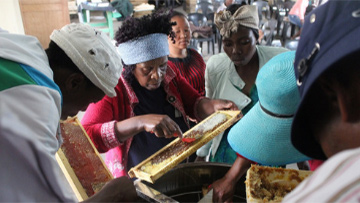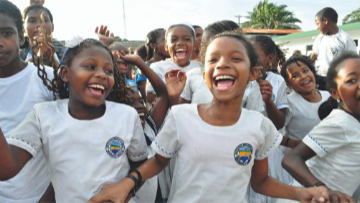“I will vote one day”: Strengthening children’s voices in South Africa

South African children are learning about their human rights and the principles of democracy through hands-on, interactive learning.
Excited boys and girls fidget and whisper to each other as they stand in line. They are waiting to cast their first ever ballot.
They are just a few of the hundreds of South African children who have been learning about the Constitution, their human rights and how to participate in a democracy.
As a significant portion of the population, youth play an increasingly important role in South Africa’s democracy. Unfortunately, in the 2019 general election youth turnout was lower than ever before.
The participation of young people is critical for a thriving democracy now and in the years to come. Canada’s High Commission in South Africa and Play Africa are working together to foster a generation of informed, engaged citizens who feel empowered to make a positive difference in the world around them.
Practicing democracy and learning their rights
In inner city schools across Johannesburg, energetic leaders from Play Africa are introducing students to the principles of democracy through playful activities and interactive dialogue.
On issues both silly and serious, the students held mock elections to practice democratic decision making. They start by “registering” to vote, marking their ballot at a child size booth and then casting their ballot in an election box. After everyone has voted, they count the votes, record the results and then discuss the benefits and challenges of the democratic process.
“Participating in Play Africa’s Children’s Voices programme gave me a chance to learn that it’s important to vote because your vote is your voice. I will vote one day.”
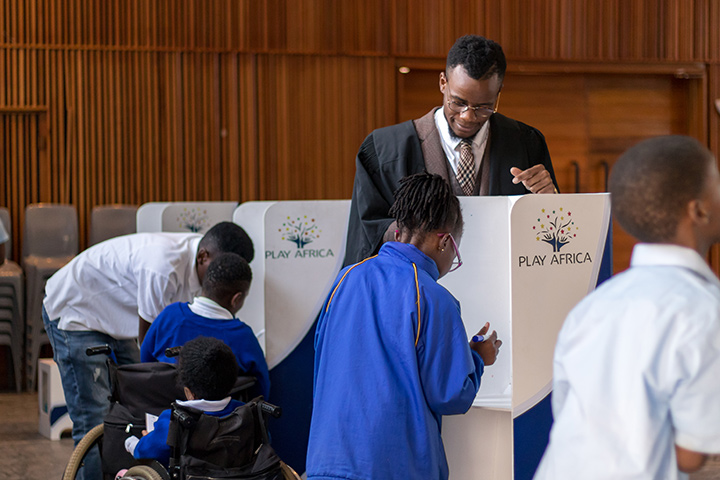 Students mark their ballots during a mock-election. Photo: Play Africa.
Students mark their ballots during a mock-election. Photo: Play Africa.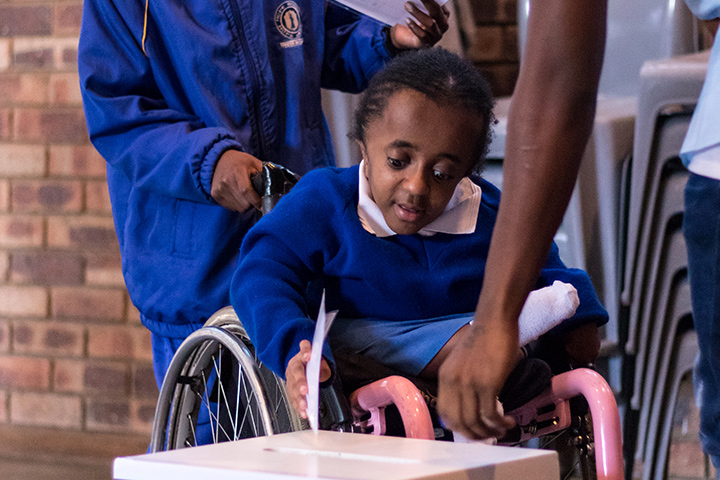 A student casts her ballot in an election box. Photo: Play Africa.
A student casts her ballot in an election box. Photo: Play Africa.In mock courtrooms, children learn how the justice system is an important tool to protect their human rights, which are enshrined in the Constitution. Through interactive play, children are learning a vocabulary to talk about their human rights, democracy and the rule of law.
The Canada Fund for Local Initiatives has ensured these workshops reach 42 classrooms across Johannesburg, including one school for kids with disabilities.
These students are now excited and prepared to participate in their democracy.
Not your typical museum
Learning is also happening outside the classroom, at Play Africa’s hands on children’s museum. Just 20 metres from the former prison cell where Nelson Mandela was once incarcerated, their unique public space is a symbol of the importance of children’s rights, which encourages children to play, explore, discover and connect.
A former prison complex, Constitution Hill in Johannesburg is now home to South Africa’s Constitutional Court as well as museums and galleries that promote human rights and democracy, like Play Africa.
Standing up for girls’ rights
In conjunction with their classroom workshops, Play Africa’s children’s museum featured a new, interactive exhibit about children’s rights, especially the rights of girls.
While both boys and girls face obstacles to participating in democratic life, girls face additional barriers because of limited economic and social power. Many girls are discouraged from speaking out in class or at home and have no opportunity to discuss their challenges.
In addition, patriarchal norms and attitudes contribute to high rates of gender based violence, including femicides, domestic violence, rape and other sexual violence.
“As we discovered in our pilot programme, empowering children with awareness of their rights is particularly important for girls and gender nonconforming children, who are often among the most vulnerable and excluded from participating fully in public life.”
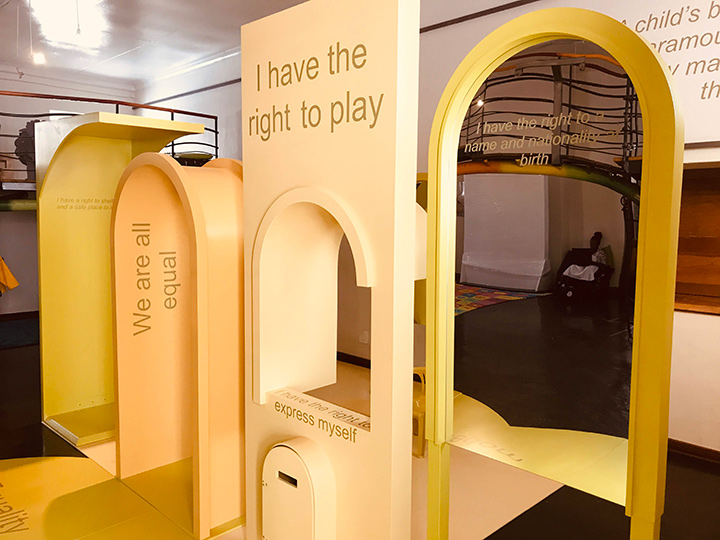 Affirmations like “I have the right to play” and “We are all equal” cover the interactive exhibit. Photo: Play Africa.
Affirmations like “I have the right to play” and “We are all equal” cover the interactive exhibit. Photo: Play Africa.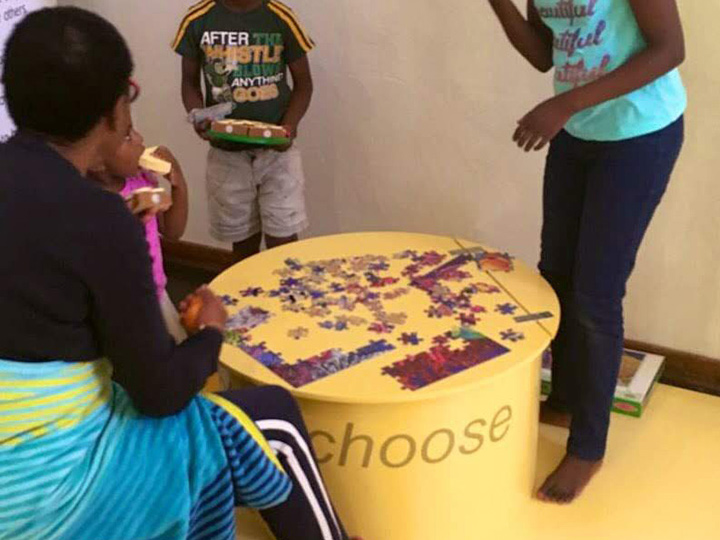 Children play, explore, discover, and connect at Play Africa’s children’s museum. Photo: Play Africa.
Children play, explore, discover, and connect at Play Africa’s children’s museum. Photo: Play Africa.Through colourful structures and multi media displays, the exhibit helps raise awareness, spark dialogue, and inspire action to advance the rights of girls, as well as all children, in South Africa.
Strengthen children’s voices: Strengthen democracy
Research shows that participation in democracy encourages children to express how they feel and what they think, to learn from each other and to speak out if their rights are violated.
When all members of society can actively participate in democratic processes, peace, security and prosperity are much more likely. The Canadian High Commission in South Africa will continue to work with local partners like Play Africa to contribute to South Africa’s healthy and robust democracy.
When we ensure that children’s rights are protected and encourage young people to be informed, engaged citizens, we are building the foundation for a strong and prosperous society.
Related links
- Date Modified:
